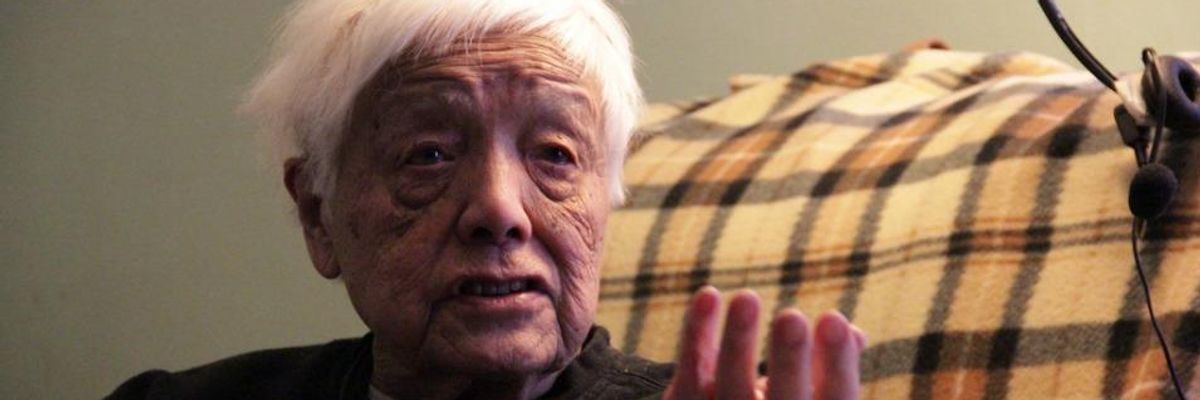It's amazing how money media cover activists, when they die. When radical philosopher and organizer Grace Lee Boggs passed away on October 5, she received long, respectful obituaries in just about every paper. "Activist and revolutionary", "trail blazer", "human rights advocate". Boggs, it was noted, lived to 100 years old. But it shouldn't take a century for the media to notice Bogg's ilk - the activists in their hometowns.
"People are aware that they cannot continue in the same old way but are immobilized because they cannot imagine an alternative," wrote Boggs. "We need a vision that recognizes that we are at one of the great turning points in human history when the survival of our planet and the restoration of our humanity require a great sea change in our ecological, economic, political, and spiritual values."
In money media that vision is sorely lacking. When they cover community organizing at all, profit driven media tend to focus only on the troublemakers - the sit-ins, shutdowns and picket lines. But while activism is often used to extract concessions from government, organizers like Boggs don't just make trouble - they make change.
At The Laura Flanders Show, we have the great privilege of meeting up close the people and organizations that are developing sophisticated ways, not just to stand up to power, but to build and use power, and use it differently.
Take Boggs in Detroit, the most radical thing she ever did, she said, was to stay, and create programs that build a sense of pride and ownership among local people through planting gardens and painting murals. In Buffalo, New York, the group PUSH Buffalo combines political campaigning with capacity building so local residents can renovate abandoned houses to the latest standards once they win control. In the Rockaways and Central Brooklyn, New York, we've reported on The Working World's co-op academy, which teaches working people the basics of businesses planning and raising capital. And as we've reported here, residents all over New York are learning a thing or two about priority setting, as they participate in local budgeting.
November 9-15 is New Economy Week, five days of events and publications focused on transforming society. They'll be lifting up visions, but also concrete models. It wouldn't require so much imagination if only the media looked around.
You can watch my interview with Matthew Stinchcomb,and Donna Schaper about the craftsmarket Etsy's latest venture, this week on The Laura Flanders Show on KCET/LINKtv and TeleSUR and find all my interviews and reports at LauraFlanders.com. To tell me what you think, write to Laura@LauraFlanders.com.
